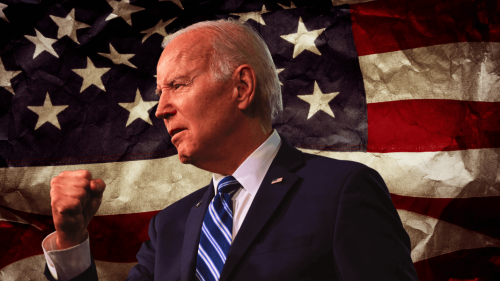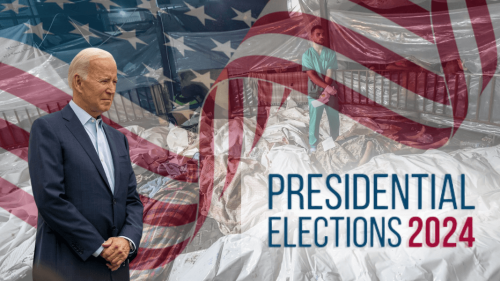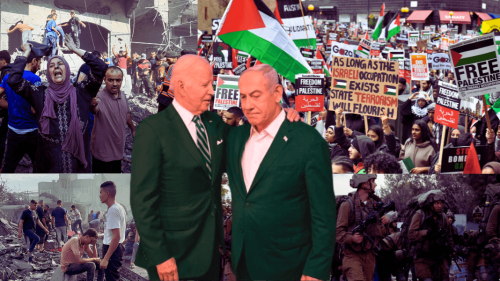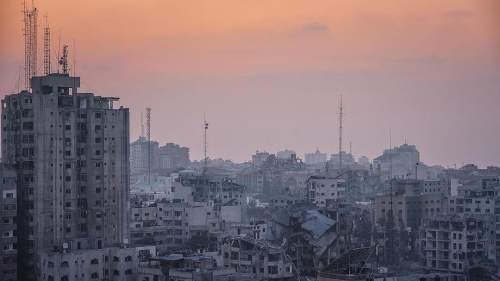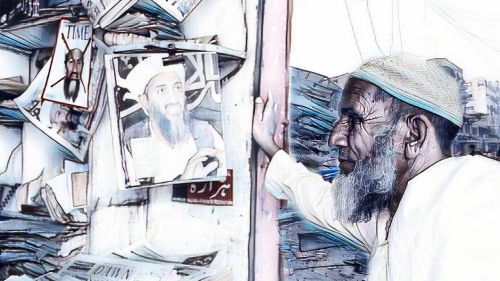Embassy Bombing Verdicts Suspect
Four men were convicted on May 29, in Federal District Court in Manhattan, of conspiring with Osama bin Laden in a terrorist plot to bomb the American Embassies in Kenya and Tanzania in 1998. While Osama bin Laden has made clear his intention to drive Americans out of Saudi Arabia, we may never know the truth about the guilt or innocence of the four men convicted, and of Osama bin Laden's role in the bombings.
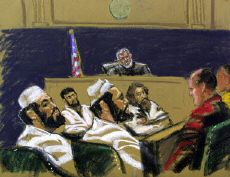
(FILE) This 03 January, 2001, drawing shows defendants, in white from left, Mohamed Rashed Daoud Al-Owhali, Khalfan Khamis Mohamed, Mohammed Saddiq Odeh and Wadih El Hage in US District Court in New York before Judge Leonard Sand. |
Prosecutors are seeking the death penalty for Mohamed Rashed Daoud al-Owhali, 24, and Khalfan Khamis Mohamed, 27. Mohammed Saddiq Odeh, 36 faces life in prison without parole. "Prosecutors had decided earlier not to seek the death penalty in his case, without explaining why," according to Benjamin Weiser of the New York Times. Wadih El- Hage, 40, also faces life without parole, "although the government acknowledged that he had no role in the bombings," Mr. Weiser reports.
The principal witnesses for the prosecution were two former members of al Qaeda, a loosely knit organization headed by Osama bin Laden. Defense lawyers question the credibility of these two former bin Laden aides.
Jamal Ahmed Al-Fadl, a Sudanese man, said he had complained about his $500 monthly salary. L'Houssaine Kherchtou, a Moroccan, was upset with Osama bin Laden after he was refused $500 to cover the cost of an emergency operation for his wife.
Defense lawyers suggest that both men were "motivated by greed in their decision to cooperate with the government, which had spent more than $1 million to provide them with new identities and lives through the witness protection program, testimony showed," Mr. Weiser reports.
There is evidence that lends credence to the concerns of the defense lawyers.
| ______________ Unlike the many opportunities provided convicted Oklahoma City bomber Timothy McVeigh, and his attorney, to state their case before an international audience, we don't anticipate CNN and others giving the same opportunity to the four convicted for the bombing of the American Embassies in Kenya and Tanzania. __________ |
According to the PBS series Frontline: Secret Threat to Justice: "A nine-month investigation by the National Law Journal has found that abuses by informants and law enforcement threaten the rights and the safety of innocent people, as well as the integrity of the courts."
"Throughout the country, law enforcement's reliance on informants has grown to almost Orwellian proportions, as snitches exert growing control over agents and judges fail to impose any checks or balances."
Secret Threat to Justice, based on an article by Michael Curriden, "The Informant Trap," National Law Journal, March 20, 1995, states: "Today's criminal justice system is addicted to informants. Some have made headlines lately, such as Michael Fitzpatrick, the longtime informant at the heart of the alleged plot by Malcolm X's daughter to assassinate Louis Farrakhan, and Emad Salem, the main witness in the terrorist conspiracy trial in New York, who prosecutors say was paid more than $1 million for his help."
According to Mr. Weiser, prosecutors did not offer evidence directly showing that Osama bin Laden ordered the embassy attacks. BBC reported that Afghanistan's ruling Taliban militia have criticised the verdict as "unfair."
Unlike the many opportunities provided convicted Oklahoma City bomber Timothy McVeigh, and his attorney, to state their case before an international audience, we don't anticipate CNN and others giving the same opportunity to the four convicted for the bombing of the American Embassies in Kenya and Tanzania.
_________________________________
Copyright 2001 The Wisdom Fund. Enver Masud is director of The Wisdom Fund.
Topics: Crime And Justice, Osama Bin Laden, Terrorism, United States Of America
Views: 1186
Related Suggestions








